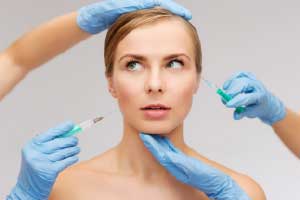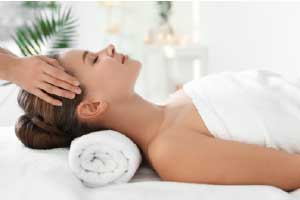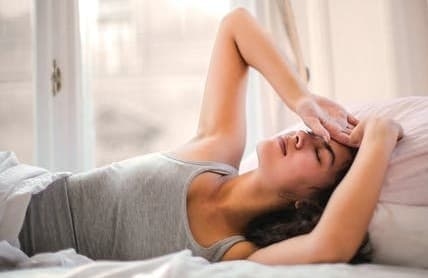
As if there weren’t already enough things interfering with rest, weeks of self-isolation and quarantine certainly aren’t helping Scottsdale’s struggling sleepers.
Or the nation’s, for that matter. An estimated 50-70 million Americans have a sleeping disorder, 22 million of whom suffer from sleep apnea, according to the American Sleep Apnea Association.
According to Everyday Health, women are more easily awakened than men as they tend to sleep more lightly. And that makes women less like to wake up rested, and vulnerable to sleep disorders.
Sleep apnea is a disorder that results in irregular or inconsistent breathing patterns at night. Scottsdale is home to more than 10 sleep clinics that work to help treat it, and most have had to convert to different methods to accommodate the shutdown.
“A lot of our referrals come from physicians in the community who aren't seeing as many patients right now,” sleep technician Lauri Leadley said. “We are also doing telemedicine which has really helped us.”
Sleep apnea patient founded Sleep Center
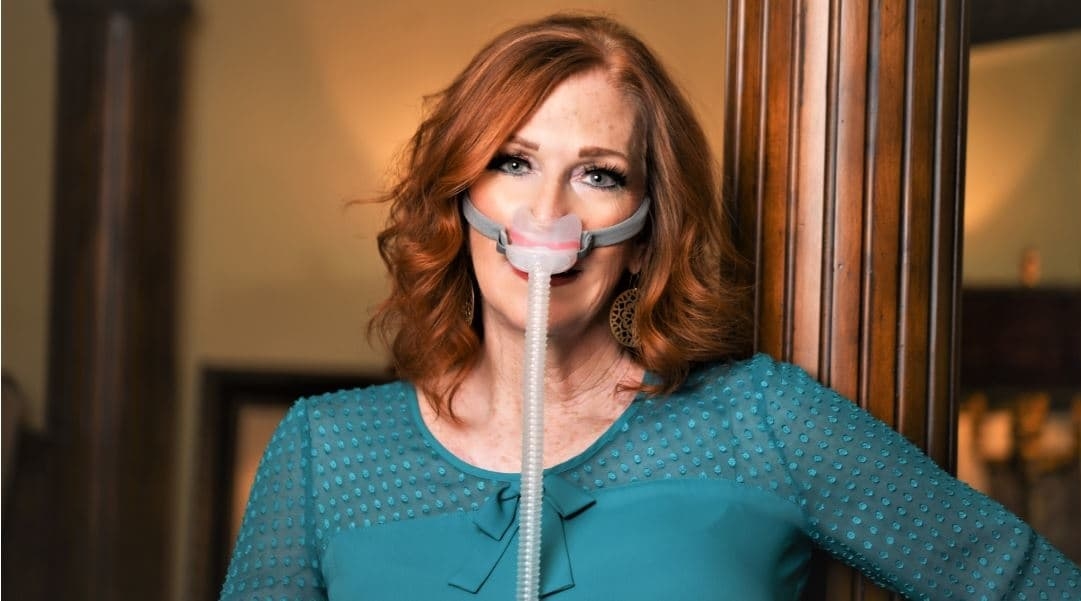 Sleep technician Lauri Leadley shows the CPAP machine used to treat sleep apnea. (Photo by Ashley Meyer, Ashley Blake Photography)
Sleep technician Lauri Leadley shows the CPAP machine used to treat sleep apnea. (Photo by Ashley Meyer, Ashley Blake Photography)
A sleep apnea patient herself for years, Leadley founded the Valley Sleep Center in 2002. The clinic has locations in Scottsdale, Mesa, Chandler, Glendale and Phoenix.
Leadley treats patients with disorders such as insomnia, sleep walking, and hypertension, and is especially interested in women with sleep apnea.
She emphasizes the most important thing to remember is that anyone can develop sleep apnea, regardless of their habits or physical traits. Multiple factors can influence a diagnosis.
“It is all anatomical,” Leadley said. “There are a lot of people who can even have (sleep apnea) as a child and do not fit the prototype of having obstructive sleep apnea.”
The two most common forms of sleep apnea are “obstructive” and “central.” The former occurs due to relaxed throat muscles and improper breathing patterns while the latter, which is slightly less common, has to do with the brain’s inability to send signals to sleep muscles.
The two can also sometimes coincide to create what is known as “complex sleep apnea syndrome,” or “mixed sleep apnea.”
Those who snore excessively or often feel tired throughout the day may suffer from sleep apnea without even knowing it. Luckily, there are several treatments available in the Valley to effectively stop it right at the source.
“We all need our rest,” Valley Sleep Center patient Joanne Zeoli of Scottsdale said. “If you're having trouble sleeping, or you have somebody with you who knows you're snoring, then go get a sleep study.”
Zeoli, 56, has lived in the Valley for nearly 20 years and was diagnosed with sleep apnea in October, 2018.
For just over a year, Zeoli was using a Continuous Positive Airway Pressure (CPAP) machine — a wearable nose piece that delivers air to patients throughout the night.
Sleep apnea patients sometimes have trouble with CPAP — the heavy-duty system can be rather inconvenient in bed and potential masks leaks can lead to bigger problems.
A year after her initial diagnosis, Zeoli began using a system known as Inspire, which she says has made all the difference.
“Besides being life-changing, it saved my life,” Zeoli said. “Basically, there's somebody there holding your hand the whole time helping you to get through it.”
Other Sleep Apnea Devices
Inspire uses an upper airway stimulator that is installed in the right side of the chest through a single-day outpatient surgical procedure.
Leadley says the device stimulates the hypoglossal nerve in the tongue to create an airway through which to breathe comfortably during sleep.
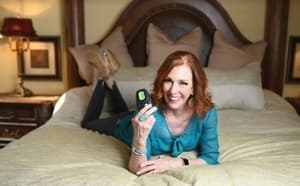 Sleep technician Lauri Leadley and the Inspire stimulator. (Photo by Ashley Meyer, Ashley Blake Photography)While patients may be initially hesitant to go forward with the installation, it is the only internal sleep apnea treatment approved by the FDA. And since it works from the inside-out, the positive results are more common and frequent.
Sleep technician Lauri Leadley and the Inspire stimulator. (Photo by Ashley Meyer, Ashley Blake Photography)While patients may be initially hesitant to go forward with the installation, it is the only internal sleep apnea treatment approved by the FDA. And since it works from the inside-out, the positive results are more common and frequent.
With the impact of the coronavirus pandemic, extra time at home in quarantine has correlated with sleep disorders, but in slightly different ways than one may think.
Zeoli cites the added stress of the situation as a key factor in obstructed sleep, which Leadley says is certainly likely.
“The stress and anxiety of what's going on is causing people to sleep lighter or wake up more often,” Leadley said. “Memories are reprocessing in ways that they would never process because of the things that we are filling our minds with during the day.”
Leadley also attributes increased alcohol consumption to sleep apnea. Drinking can often lead to deeper and extended sleep, which can lead to more intense bouts of snoring and more frequent episodes.
Whether someone is aware they have sleep apnea and isn’t seeking treatment, or might be questioning whether or not they suffer from it, it is advised to visit a specialist immediately.
Breathing problems throughout the night are one thing, but for women, sleep apnea can lead to risk of stroke, heart attack, and other disorders.
“If you don't plug your cell phone in at night, you don't get through till noon. So why would we do that to our body?” Leadley said.
“If you're a woman that's struggling with fatigue and you're not feeling well — you have racing thoughts, insomnia or you snore — at least get evaluated.”
While the future of social distancing and the duration of self-isolation remain up in the air, struggling sleepers can and should always get a jumpstart on their treatment.
By Harry Croton
5 Signs of Sleep Apnea
1. Tiredness throughout the day.
2. Loud snoring.
3. Episodes in which you stop breathing during sleep.
4. Awakening with a dry mouth.
5. Difficulty paying attention while awake.
Source: The Mayo Clinic
Valley Sleep Center: Scottsdale
9767 North 91st St.
Building B, Suite 104
Scottsdale, AZ 85258
Via Linda and 91st Street, East of the 101
480-284-4015



